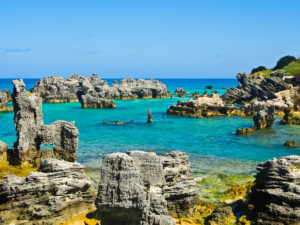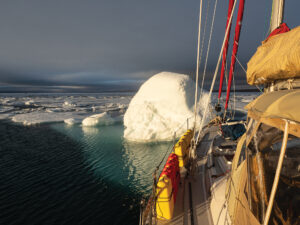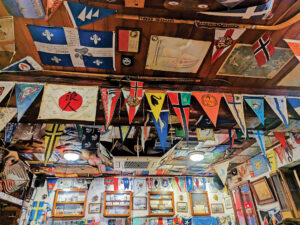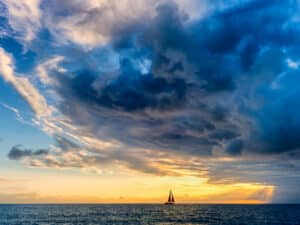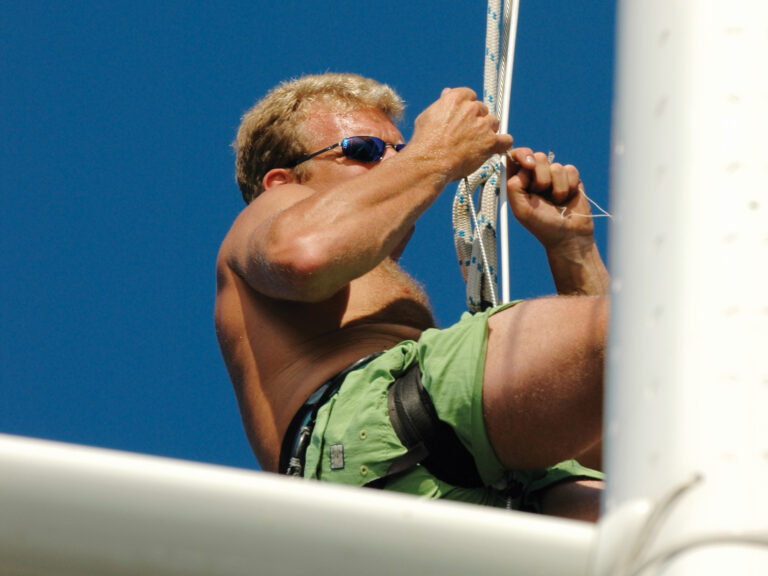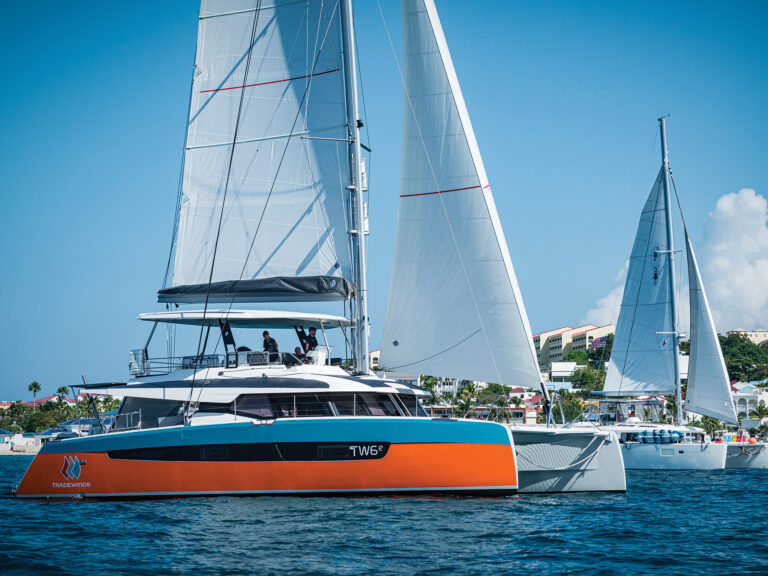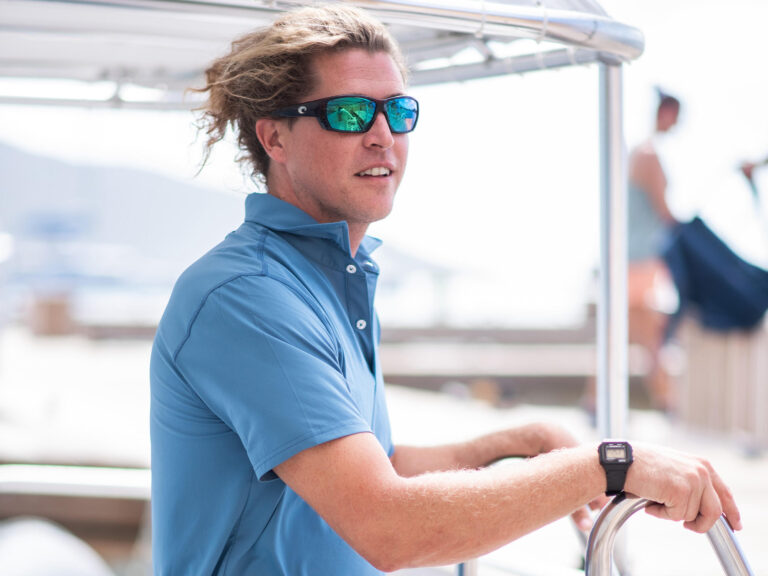
Alvah headshot 368
There seems to be a vortex here in Guam into which passing yachts fall and cannot find their escape. We have been here for eight weeks, we’ve gotten up each morning early and with purpose, and yet are still scrambling on this, the day of our departure. Okinawa lies 1,230 nautical miles to the west-northwest. For as much as I would have loved to be in Japan earlier, I believe our timing is correct. If one departs too early they face the winter lows rolling off the Asian mainland. If one dawdles, they play Russian roulette with the all too frequent typhoons.
I told Diana a week ago that I was ready to leave Guam, but I meant emotionally, not physically. I have been chasing electrical gremlins around the boat, from my alternator to the SSB, tuning the rig, changing the engine fluids, checking sails. Di has been restocking the overboard bag, inventorying the medical kit, and topping off the provisions that should last us into Alaska next September.
Yesterday, as I worried about the few unattended items on my long work list, a very rough looking multihull tacked into the bay with a Swiss Family Robinson crew of a mother, father, and three children. I love the fact that our oceans are not over-regulated and we are still allowed to conduct our affairs as we individually see fit. “Yachtsmen” have a reputation of being so fastidious that it borders on obsessive-compulsive behavior; polished bronze, gleaming teak, “a place for everything and everything in its place.” But from a hundred yards away it was clear that this captain came from a different school of thought and, in fact, might have graduated with honors from “Sail and Bail U.”
On shore over drinks, the obviously relaxed captain, who had little call for shirts and shoes, teased me about my frenetic preparation. “You don’t need any of that stuff anyway,” he declared. “We don’t even have a dingy. We just paddle the wind-surfer to shore.”
I asked him when his port rudder had been ripped off. He had to search back in his memory. “I think it was after the dismasting, so it was probably Majuro.”
Under increased teasing, the definition of my philosophy turned into a defense. I was shocked by how conservative, how old school I sounded. Me! I have always envisioned myself as a wild-child anarchist of the oceans with latent Rasta-man tendencies. I scraped by on rice and fish and hand stitched sails. It’s fortunate the wind blew for free because I couldn’t always afford diesel. But I never lost a night’s sleep worrying about the future.
Nevertheless, last night I lay awake wondering if I had indeed lost something: the spontaneity, the easy breezy flow of the free life afloat. It’s good to be challenged and forced to reassess. I reassured myself, muttering almost out loud, “Why, I drifted around the world endlessly on my little plywood…” Then it hit me, I may have drifted endlessly but never aimlessly. There was always The Plan, and as flexible as the seasons and my budget forced it to be, it was the epicenter of my psyche for my first 15 years afloat: Circumnavigate!
And there was always The Boat. I gave my silly little vessels my first and last dollar. I scraped, painted, screwed and glued, upgrading everything ever so slowly. I decided early on that I would never have the largest or fastest boat in an anchorage, but by God, I could still have the tightest and cleanest.
In the end I was forced to admit that I have never been easy breezy about sailing. Instead I have cast my lot and lived my life with a code of conduct that is demanding and disciplined. It is called Seamanship, and it is based on two suppositions: The sea is beautiful but terrible, and sailing boats are terrible but beautiful. By this I mean that the sea, for all its majestic beauty, possesses an inherent power so awesome and dangerous that we can hardly prepare for it, yet prepare we must. It is a sign of respect, and while there are no guarantees out there, I believe one’s efforts do not go unnoticed.
Second, is that boats are exhausting, demanding, and cranky, but they are things of beauty–engineered purpose hidden beneath elegant curves. But even if chopped and chunky they carry our sacred dreams and for that alone they deserve our best efforts. A boat should not pass from owner to owner, but from steward to steward, always respected and improved.
This morning, as we readied the Roger Henry for the high seas I concluded that I have lost nothing. I have just kept something I gained from the moment I stepped aboard my first boat. If that’s old school, then I am forced to admit out loud that I am a proud alumnus.

